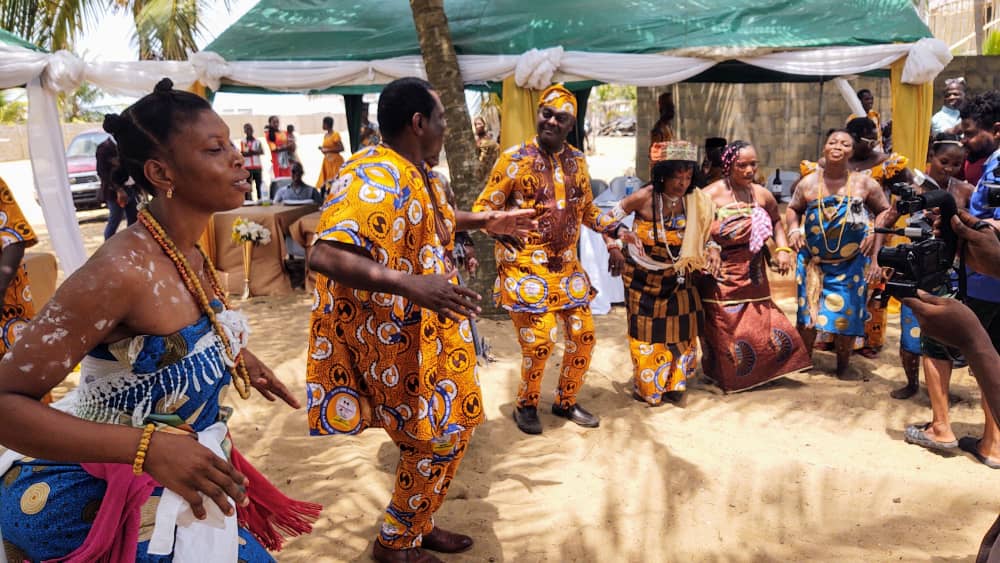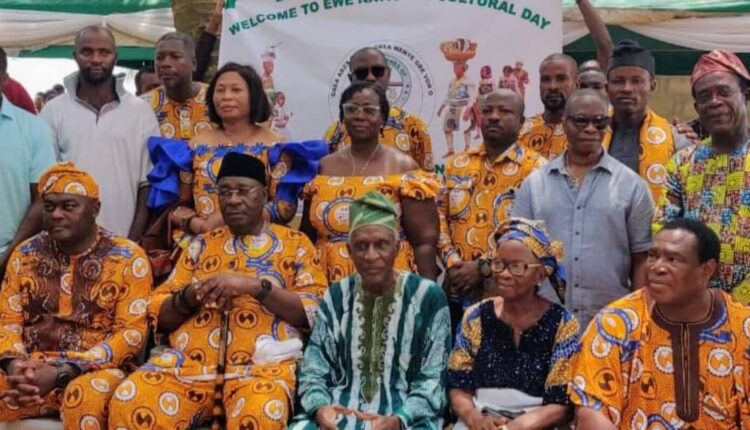Ewes in Nigeria are Bonafide Yoruba Citizens – They Originated from Ile Ife – Ayo Ladigbolu
“Yoruba language was the lingua franca of the Ajah and Ewe. They also wholeheartedly embraced the Yoruba traditional religion and its practices are warmly embraced by all their communities in spite of the existence of, and their adherence to Islam and Christianity.
- Advertisement -
Archbishop Emeritus of the Methodist Church, Nigeria (MCN) and chairman of the Yoruba Unity Forum (YUF), Prince Ayo Ladigbolu, says, the Ewe people are bonafide Nigerians who originated from Ile Ife in the old Oyo Empire.
Speaking at the first Ewe National Cultural Day celebration in Badagry, Lagos on Friday, March 29, Ladigbolu said the Yoruba roots of the Ewe people could be traced to the Old Oyo empire and the ancient city of Ile-Ife.
- Advertisement -
“The story of the Ewes is one of great historical significance, as they trace their roots back to the Old Oyo empire and the ancient city of Ile-Ife,” he said.
- Advertisement -
“It was under the leadership of Alaketu, a grandson of Oduduwa, that the Ewes embarked on a remarkable journey, migrating from Ile Ife during the twelfth century.
“The Ewe ethnic group of Nigeria stands as the descendants of those who journeyed from Ile Ife to various parts of modern West Africa before returning to establish their presence in Badagry and the coastal villages of Lagos State well before 1914.”
“Their rich history and cultural contributions are a testament to their enduring legacy, as documented in the BRIEF HISTORY OF THE EWES OF NIGERIA submitted to the President and the Commander-in-Chief of the Armed Forces, Federal Republic of Nigeria, in 2004.
“In addressing misconceptions, it is vital to recognize that the Ewe ethnic group is distinct from the ‘Agayin’ (Gἓnyi), both in historical and linguistic terms.
“The acculturation resulting from the Accra, Ada versus Akwamu war led to the settlement of a group of war refugees from Accra in Glidzi (Togo) with the assistance of the Anlo Ewes.
“The distinction between the Gᾱ and Ewe speakers, now colloquially referred to as ‘Aganyi,’ has been a point of misunderstanding, which we aim to clarify today.
“The Ewe communities on the coastline of Lagos State have always been indigenes of Badagry Kingdom in Lagos State and bonafide citizens of Nigeria (See Memo from His Majesty the Akran of Badagry to the Nigeria Comptroller-General of Immigration of 30/07/2004).
- Advertisement -
“The communities along the beach stretch from Seme border through Takwa Bay to Epe beaches. They have been involved in traditional and modern fishing occupations and the planting of coconut trees for centuries.
“It is on record that the oldest coconut tree in Nigeria may have been planted by the Ewe-speaking Nigerians.
“Yoruba language was the lingua franca of the Ajah and Ewe. They also wholeheartedly embraced the Yoruba traditional religion and its practices are warmly embraced by all their communities in spite of the existence of, and their adherence to Islam and Christianity.
“Yoruba traditional names such as Fagbeji, Amosu, Akapo, Agboade, Abiodun, Famuyiwa still remain Ewe names till date as inerasable symbols of their historical and cultural affinity to the Yoruba race.”
Their devotion and preservation of Yoruba culture of rituals, sacrifices, art, crafts, dance and music and their display of commitment to peaceful co-existence with their neighbors and their ability to promote brotherly interactions, are significant hallmarks of the Ewes uniqueness as Nigeria citizens.
This significant patriotic traits are applicable to all the more than seventy five Ewe villages and communities located within the jurisdiction of Badagry – Ojo, Amuwo Odofin, Eti Osa, and Lagos Island Local Government areas of Lagos State,” Ladigbolu indicated.
The Ewe National Cultural Day celebration which brought together hundreds of Ewe indigenes in Nigeria was also graced by a high powered delegation from the Council of Ewe Associations of North America (CEANA), led by its president Dr. Tsatsu E. Nyamadi and it’s Ghana, Togo and Benin representative, Torgbi Agbelorm-Agbotokor II, Chief of Salo – Sokutsime in the Anlo Traditional Area of the Volta region.
It was celebrated on the theme: “Strength for Peace.”







By Leo Nelson || Ghananewsonline.com.gh
- Advertisement -


